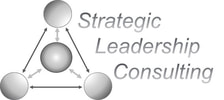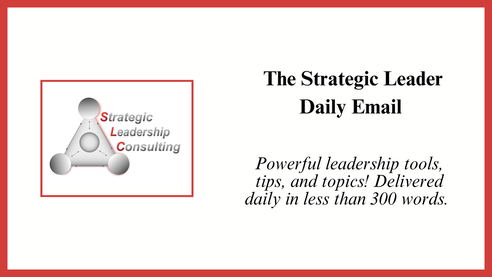|
Colleagues,
20. In the end, it’s really about people I’ve been blessed to have had an incredible career in which I have been able to contribute important things to a lot of people. As a teacher and leader, I have been able to change lives (that’s a shameless plug for the teaching profession). I’m not done yet, either. However, what I have only recently come to understand is that as important as those things have been, what really mattered was being in the relationships with each person. It really is about the person in front of you at the moment, and about being human together. We forget that in this insanely busy world. Try this – instead of eating lunch at your computer trying to catch up with email, go eat lunch with a colleague. Enjoy being present with and for that person. That is more important than email. Spending time with a colleague will also make you a better leader in a way that catching up on email cannot. Intention: Next week, make sure to have lunch with someone. Get away from the computer and ask the second question. Be present. This has been our annual 20 Things run of emails. This year we have three bonus pieces of wisdom. If you responded to any of the previous 19 messages, or if you respond to this one, you will be receiving a special email with the four additional pieces of wisdom! Intention: Choose your favorite piece of wisdom, write it on a sticky note and place it on your mirror. Cheers! Frederick
0 Comments
Colleagues,
19. Good leaders are patient In 1985 I was a football graduate assistant for The Ohio State University. I worked with our recruiting coordinator Bob McNea. In my 22-year-old mind Coach McNea seemed to be about 112 years old. Each day we would come back from lunch, and he would pull out his big ring of keys, search for the right one, and then attempt to gain entry into our office. I say attempt because the lock was finicky, and the key had to be jiggled just so. One day, in my exuberance, I became impatient and took the keys from his hands. “Here Coach, I’ll do it.” Because, of course, this young man could do it better (faster) than the old one standing next to me. Coach looked at me, and in a firm but kind voice said, “Frederick, how are you ever going to be a good teacher if you don’t have patience?” I can still hear him. Great teachers have great patience. Why? Patience creates space… a safe space. It is in that safe space that people can take the time and the risks that will help them grow. Strategic leaders prioritize growing people, and so strategic leaders must be patient teachers. Coach McNea passed away in 2010, and I regret never having told him how much of an impact he had on me. Intention: Consider taking a few minutes today to reach out to someone who you want to acknowledge – before it is too late. Cheers! Frederick Colleagues,
18. Focus on A-B My mind always goes to the big idea. There is good in that, but usually it is better to focus on the next step. Stay focused, be simple, and just get better incrementally. Being a bit better today than yesterday is enough. Any small improvement today is more valuable than a big change months from now. I should confess, of all the wisdom this month, this is consistently the hardest one for me to follow. I love big ideas and grand plans, but they only work when we can break them down into A-B steps. Intention: Focus on taking one small action that makes one thing a tiny bit easier right now. Cheers! Frederick Colleagues,
17. Juggling is better than being balanced I figured this one out on my own, but it took a long time. I used to want to be more balanced with my time. My life was always out of balance and usually work had the lion’s share. For years, I said “I need to have a more balanced life.” Then, by some strange alignment of the stars, I achieved a balanced life. Was it wonderful? No. I hated it. Being balanced means you are mediocre at everything. That might be okay for some people, but I can’t do it. Now. instead of balancing, I juggle. I focus on one thing, put all of myself into it, and then I throw it into the air and move to the next thing. Each part of my life gets my undivided attention, but only for brief snippets. I can be good at everything I do by only doing one thing at a time. Intention: Reflect on this. We aren’t all the same, so do you want balance or juggling? Why? Cheers! Frederick This week we focus on what is important and how we manage it all.
16. We don’t manage time, we manage priorities The concept of time management is a hoax designed to protect us from confronting the hard truths about how we allocate our time. Time management suggests that we can do everything if we just organize. Time management focuses on getting tasks done. It pretends to emphasize priorities, but it doesn’t. Tasks are not priorities. When we organize around priorities, as opposed to time, we increase our impact on people. We build, create value, and sow the seeds of future growth and success. If we aren’t helping people grow, that tells us something about our priorities. Do the important things first. The rest will sort itself out. Shameless plug: Get my book, A School Leader’s Guide to Reclaiming Purpose, if you want to learn a whole process for managing priorities. Intention: Think about recent opportunities you have had to help someone grow, and what you allowed to get in the way. Cheers! Frederick |
Categories
All
Archives
July 2024
|


 RSS Feed
RSS Feed